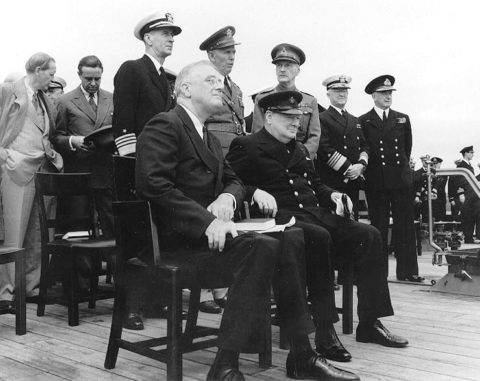The first important clarification we need to make is that there are, in a sense, two Roman dictatorships. Between 501 and 202 BC, the Romans appointed roughly 70 different men as dictator for about 85 terms (some dictators served more than once) through a regular customary process. Then, between 201 and 83 BC, a period of 118 years, the Romans appoint no dictators; the office dies out. Then, from 82-79 and from 49 to 44, two dictators are appointed, decidedly not in keeping with the old customary process (but taking the old customary name of dictator) and exercising a level of power not traditionally associated with the older dictators. It is effectively a new office, wearing the name of an old office.
The nearest equivalent to this I can think of would be if Olaf Scholz suddenly announced that he was reviving the position of Deutscher Kaiser (German Emperor) for himself, except without the legal structure of that title (e.g. the Prussian crown acting as the permanent president of a federation of monarchs) or the constitutional limits it used to have. We would rightly regard that as a new office, using the title of the old one.
This point is often missed in teaching Roman history because Roman history is very long and so gets very compressed in a classroom environment. Even in a college course focused entirely on the history of Rome, the gap between the end of the old dictatorship and the start of the new one might just be a couple of weeks, so it is easy for students to accept the new dictators as direct continuations of the old ones, unless the instructor goes out of their way to stress the century-long discontinuity. This is, of course, all the more true if the treatment is in a broader European History (or “Western Civ”) course or in a High school World History course – which might be able to give the Roman Republic as a whole only a week of class time, if even that much. In that kind of compressed space, everything gets mushed together. Which in turn leads to a popular view of the Roman dictatorship that this office was always a time-bomb, ready to inevitably “go off” as soon as it fell into the hands of someone suitably ambitious, because the differences and chronological gap between the old, customary dictatorship and the new irregular one are blurred out of vision by the speed of the treatment.
Just as a side note, this is generally a problem with the Roman Republic. Popular treatments of how the Republic worked – much less pop-culture representations of it – are almost always badly flawed […] The opening minutes, for instance, of the Crash Course video on the Romans is a series of clear errors, one after another, in describing how the Republic functioned as a matter of law and practice. If for some reason you want to not be wrong about the structure of Roman government, the book to read – though it is more than a bit dry and quite pricey – is A. Lintott, The Constitution of the Roman Republic (1999). I keep thinking that, as a future series, I might take a look at the basic structures of Greek and Roman civic government (“How to Polis, 101″ and “How to Res Publica, 101″) – especially if I can talk a colleague into providing a companion treatment of medieval Italian commune government – both as a historical exercise but also for the world builders out there who want to design more realistic-feeling fictional pre-modern governments that aren’t vassalage/manorialism systems.
Bret Devereaux, “Collections: The Roman Dictatorship: How Did It Work? Did It Work?”, A Collection of Unmitigated Pedantry, 2022-03-18.
September 5, 2024
QotD: Common misunderstandings about the title of “Dictator” in the Roman Republic
September 4, 2024
The Korean War Week 011 – Destroy the Perimeter! – September 3, 1950
The Korean War by Indy Neidell
Published 3 Sep 2024The North Korean forces launch a huge new offensive against the entire Pusan Perimeter, hoping to break through at least somewhere along the line. They are aware that time is of the essence, for the UN forces grow in number daily, while they are losing a battle of attrition. Some new UN arrivals this week are the first British ground troops in Korea for the fight. Meanwhile, Douglas MacArthur’s plans for his upcoming surprise counteroffensive hit all sorts of snags thanks to Korean geography.
Chapters
00:51 Recap
01:26 The British Arrive
03:47 New KPA Strategy
06:49 The New KPA Offensive
12:26 More Incheon Issues
15:16 The US and China
17:12 Summary
(more…)
British Foreign Secretary David Lammy indulges himself with a Trudeau-esque bit of geopolitical posturing
In Spiked, Brendan O’Neill outlines the British government’s odd choice of timing to announce suspension of (some) arms shipments to Israel:
Bereft of vision, the modern politician is obsessed with “optics”. Which makes foreign secretary David Lammy’s announcement this week that the UK will be suspending some arms exports to Israel all the more surreal. The optics of withholding weapons from the Jewish State the day after we discovered that its enemy is so ruthless it will happily murder young Jews in cold blood are atrocious. Did not one functionary in the Foreign Office think to raise his or her hand and say: “Sir, should we at least wait until the bodies of those six Israeli hostages are cold before we shame and punish the nation they came from?”
This goes way beyond optics, of course. It is more than a failure of spin. It is a failure – a colossal, unforgivable one – of morality. As the bodies of the six slain Jews found in one of Hamas’s hellish lairs in Rafah were being transported back to a grief-stricken Israel, our government took action not against the Islamist extremists who carried out this unutterable atrocity, but against the nation that suffered it. Mere hours after the discovery of an act of fascistic savagery, our government handed a propaganda victory to the fascists by dragging Israel’s name through the mud. What were they thinking? Shameful doesn’t cover it.
Mr Lammy has said around 10 per cent of arms sales to Israel will be suspended. Thirty out of 350 arms-exports licences will be cancelled, primarily affecting parts for fighter jets, helicopters and drones. The reason for this smug, haughty smackdown of the Jewish State? Because there’s a “clear risk”, said Lammy, that such equipment will be used to “commit or facilitate a serious violation of international humanitarian law”. Big talk from a politician who noisily supported the West’s imperial bombardment of Iraq that led to the deaths of hundreds of thousands of civilians and the widescale torture and rape of prisoners.
Many are damning Lammy’s partial embargo as gesture politics. “What is the point?”, headlines wonder. Denying Israel a few parts for planes won’t make much difference, some moan. For the frothing Israelophobes of the iffy left, nothing less than a complete arms embargo will do. They want not one gun to go to crazy Israel. If only there was a word to describe people who agitate morning, noon and night for the disarming of a Jewish nation that recently suffered the worst act of anti-Semitic violence since the Holocaust.
The obsession with the partial nature of Lammy’s reprimanding of Israel misses the point. What the Foreign Office has just done is huge – and profoundly troubling. Sure, it won’t make much of a dent in Israel’s ability to fight Hamas, but it will cast aspersions on Israel’s fight against Hamas. It won’t militarily weaken Israel’s war on the pogromists that slaughtered more than a thousand of its people on 7 October, but it might morally weaken that war with its sly implication that there’s a criminal element to this crusade against Hamas’s army of anti-Semites. The partial arms embargo is indicative of something far more unsettling: a solidarity embargo as Britain slowly but surely turns its back on the Jewish nation.
QotD: The modern tribal divide – the “Somewheres” versus the “Anywheres”
In his book The Road to Somewhere, my colleague David Goodhart identified two broad political tribes – those who see the world from Anywhere and those who see the world from Somewhere.
Boris Johnson’s election victory has once again brought this divide to the surface.
Anywheres tend to be younger and place more value on career and education – that is, they see themselves in terms of what they have achieved. They are also more comfortable with ethnic diversity and mass immigration, precisely because their identities are less rooted to place and group.
Somewheres, by contrast, are older and place greater value on the communities in which they live. This is not to say that Anywheres do not care about their community. Rather, Anywheres can see themselves prospering in any community.
Goodhart estimates that around 50 per cent of the population are Somewheres, 25 per cent are Anywheres, and the remainder occupy the grey area between the two camps. Both worldviews are perfectly legitimate, but the problem is that they can conflict.
From sitting in seminar after seminar, packed with policymakers, politicians, journalists and academics, Goodhart became painfully aware of how much the Anywhere view dominates public discussion, despite being a minority view.
Richard Norrie, “The revenge of the Somewheres”, Spiked, 2020-01-13.
September 3, 2024
The End of World War Two – WW2 – Week 314B – September 2, 1945
World War Two
Published 2 Sep 2024The Japanese sign the official document of surrender and the Second World War is over. There are still some Japanese garrisons yet to surrender, but they begin doing so one after the other. However, war is not over — and there is serious foreboding for future events in places like Vietnam and China — where Mao Zedong is meeting with Chiang Kai-Shek, even as Josef Stalin lurks in the background to secure Soviet interests no matter which Chinese regime comes out on top.
00:00 Intro
00:59 Vietnam Declares Independence
04:04 The Importance Of Manchuria
06:28 Japan’s Surrender
11:22 The Final Surrenders
13:18 Casualties
15:50 The End
(more…)
Sten MkII: Just When You Thought It Couldn’t Get Simpler
Forgotten Weapons
Published May 29, 2024The Sten MkI had barely been approved for production when the Sten MkII was born. Initially requested to produce a version of the gun suitable for paratroopers, in March 1941 Harold Turpin redesigned the front end of the Sten to have a quickly detachable barrel and a rotating magazine well (for compact storage). This new model was tests in late June and early July, approved for use, and contracts for it were issued in August 1941.
Named the MkII, this model of the Sten would quickly become the standard, and it was ultimately produced by six major factories (with the assistance of hundreds of subcontractors) on three continents to the tune of 2.6 million examples made. In addition to the barrel removal, the new model has a simpler front sight, simpler stock, and a revised bolt locking notch (upward, instead of downward like on the MkI).
(more…)
September 2, 2024
Roman auxiliaries – what was their role in the Imperial Roman army?
Adrian Goldsworthy. Historian and Novelist
Published May 8, 2024The non citizen soldiers of the Roman Auxilia served alongside the Roman citizens of the legions. In the second and third centuries AD, there were at least as many auxiliaries as there were legionaries — probably more. Some were cavalry or archers, so served in roles that complemented the close order infantry of the legions. Yet the majority were infantrymen, wearing helmet and body armour. They looked different from the legionaries, but was their tactical role and style of fighting also different. Today we look at the tactical role of Roman auxiliaries.
Extra reading:
I mention M. Bishop & J. Coulston, Roman Military Equipment which is one of the best starting places. Mike Bishop’s Osprey books on specific types of Roman army equipment are also excellent. Peter Connolly’s books, notably Greece and Rome at War, also remain well worthwhile.
September 1, 2024
Can Chiang and Mao Unite China? – WW2 – Week 314 – August 31, 1945
World War Two
Published 31 Aug 2024Mao Zedong takes his first ever journey by plane to go and meet with Chiang Kai-Shek. They begin what will be several weeks of talks and negotiations. However, Chiang is not aware that Josef Stalin is lurking in the background. And the Soviet Red Army is lurking in Manchuria, having defeated the Japanese there, and are giving tacit support to the Chinese Communists, whose power base is very strong in the north. As for Japan, a motley collection of Allied fleets arrives in Tokyo Bay, for Japan’s surrender document is to be officially signed two days from now.
(more…)
The supermarket master plan to defeat the “far right” in Germany
There are elections ongoing in the German states of Thüringen and Saxony, and the polls show that the “far right” Alternative für Deutschland is potentially going to get 30% of the votes, which would give them more representation in those states than any of the other parties. Panic and hysteria have set in not only among the politicos and the mainstream media, but even among some businesses:
In Germany, all political parties have a colour. The Christian Democratic Union and the Christian Social Union are black, the Social Democratic Party is red, the liberal Free Democratic Party are yellow and the evil fascist Alternative für Deutschland are blue. This coming Sunday, Thüringen and Saxony will hold state elections, and the blue AfD are leading the polls in both states with about 30% support. This has a lot of people very, very upset. Most of them are merely upset with the AfD, but some psychologically unstable people have allowed their anger to embrace the colour blue more generally, because there can be no limits when it comes to resisting the evil antidemocratic forces of fascism.
Among the new sworn enemies of the blue band of the visible electromagnetic spectrum are the marketing team at Germany’s largest supermarket corporation, the Edeka Group. A few days ago, this supermarket chain, whose own logo strangely enough is primarily blue …
… ran an ad in Die Zeit and the Frankfurter Allgemeine Zeitung explaining “WHY BLUE IS NOT ON OFFER AT EDEKA”.
That wall of text in the middle reads as follows:
Yellow bananas, red tomatoes, green lettuce, purple grapes, orange carrots, pink dragon fruit … EDEKA’s fruit and vegetable department is full of colourful diversity. Or is it?
If you look closely, there’s one colour you won’t see: blue. And that’s no coincidence. Because blue food is nature’s way of warning us: ‘Watch out! I could be harmful!”
Evolution has taught us that blue is not a good choice.
And speaking of choices: Blue is not only the natural enemy of a healthy diversity of fruit and vegetables. In Germany, “the blues” are also the biggest threat to our diverse society.
So let’s read the warning signs correctly ahead of the state elections in Saxony, Thüringen and Brandenburg in September – and ensure that we can live together in harmony. Because we love diversity.
For those wondering whether Edeka have decided to cease selling fascist blue fruits like blueberries, there is a helpful note down in the corner:
There we learn that, while “‘Blueberries’ or ‘Blue cabbage'” may have “‘blue’ in their names”, their “colour pigments” are not blue. This is “at least what Science tells us – and as we know you should always listen to Science more”. Nothing about this is remotely obnoxious; indeed, if current-year Germany needs anything, it is more blind platitudinous calls to Follow the Science – particularly when it comes to exonerating innocent fruits and vegetables from suspicion of blue fascism.
August 31, 2024
Forgotten War Ep2 – You Walk, You Walk Or You Die Mate
HardThrasher
Published 30 Aug 2024Please consider donations of any size to the Burma Star Memorial Fund who aim to ensure remembrance of those who fought with, in and against 14th Army 1941–1945 – https://burmastarmemorial.org/
(more…)
Britain’s police double down on “non-crime hate incidents” as a tool of repression
Andrew Doyle admits he was over-optimistic by predicting that the British police forces’ use of “non-crime hate incidents” — after court judgments and Home Office instructions to stop using them — would not last for much longer. That was in 2022:

“Metropolitan Police London England” by William Mewes is marked with CC0 1.0 .
I have a tendency to be over-optimistic. In my 2022 book The New Puritans, I wrote about “non-crime hate incidents” and how they were still being recorded by police, in spite of the Court of Appeal’s ruling that they were “plainly an interference with freedom of expression” and direct instructions from the Home Office that the police must stop this illiberal and unethical practice. However, I concluded that ultimately “it seems unlikely that ‘non-crime hate incidents’ will last for much longer”.
Of course I was wrong, because I had not counted on just how authoritarian a new Labour government might be. It was bad enough that the Education Secretary Bridget Phillipson scotched the Higher Education (Freedom of Speech) Act just one day before parliament went into recess — presumably to avoid having to debate the matter — but now the Home Secretary Yvette Cooper has reversed the Conservatives’ pledge to limit the recording of “non-crime”. Labour is bringing back this absurd policy, and has convinced itself that this is somehow a progressive measure.
It should go without saying that the police have no business recording “non-crime”, particularly when such records are based on accusations alone (that is to say, the “perception” of the “victim” is what counts, rather than actual evidence of hatred). The Tory government should have eliminated the entire practice in its entirety, but instead decided that such “incidents” ought to stay on record if there was a “real risk of escalation causing significant harm or a criminal offence”. The science fiction writer Philip K. Dick had a phrase for this: “pre-crime”.
So let’s leave aside the woefully inadequate restrictions put in place by the Tories. Let’s also leave aside the obvious point that hatred, along with all other emotions, will never be eradicated through legislation and that the state is wasting its time trying to alter human nature. Let’s focus instead on why the Labour government is so determined to control the speech and thought of its citizens.
How does it help anyone for the name of the schoolboy who accidentally scuffed a copy of the Koran at a school in Wakefield to be on police records? His “non-crime” was duly recorded after the event, but why? Does the government really suppose that this child is one step away from torching a mosque? Even if he had deliberately scuffed the Koran, what has this to do with the police? I don’t much approve of defacing books, but vandalism of one’s own property is a matter for individual conscience.
Of course, Labour will say that the recent riots have proven the necessity for cracking down on the private thoughts of citizens. In truth, these acts of violence are being exploited to justify further authoritarian policies. We have seen how quick our politicians are to seize upon these moments to advance their own goals. The murder of Sir David Amess had precisely nothing to do with social media, and yet politicians immediately began to argue that his death was evidence of the need to curb free speech online. This was grotesque opportunism from a political class that does not trust the public.
August 30, 2024
Two-Tier Keir’s “mask off” moment(s)
Millennial Woes presents a disturbingly long summary of British Prime Minister Keir Starmer’s responses to popular non-violent protests:
The situation in Britain now is so perverse that, if you could convey it to people from a century ago, I think they, after getting over the disbelief and astonishment and accepting that this really was true, would assume it could not possibly have come about by chance. Whatever their complaints about the Britain of 1900, they wouldn’t have believed it capable — on its own — of the degeneration we have seen. They would insist that it must have been wickedly subverted, every failsafe removed, and entire systems of governance, culture and morality repurposed, made to achieve the opposite of their purported function.
I hardly need list the symptoms of this, but for the sake of posterity …
- The control nexus (of which the government is merely one node) ships massive numbers of unassimilable foreigners into the country against the repeatedly expressed wishes of the natives, and in clear violation of their best interests.
- Natives who complain about this are hounded, doxed, demonised, made unemployable, and often imprisoned.
- Their children are systematically indoctrinated by fiction media to accept their dispossession. They are encouraged to despise the “bigoted” attitudes of their parents and grandparents, and to loathe their nation’s history. The boys are encouraged to idolise non-native men. The girls are encouraged to race-mix with them.
- Teachers deliver the same indoctrination in the classroom — in every classroom. You won’t be allowed to become a teacher unless you voice enthusiasm for such things. Alternative views have been eradicated from the classroom and the lecture hall.
- Natives are systematically disadvantaged in numerous sectors of education and employment.
- Natives are demonised in fiction and news media while non-natives are made to look wonderful.
- The mass sexual abuse of native children by non-natives is systematically down-played by news media, who shift discussion to false “equivalents”.
- Natives’ history is systematically distorted in education and fiction media.
- The very existence of the natives, as a group, and their ownership of their homeland, are systematically denied by education, fiction media, news media, and phoney “science”.
- The police do whatever they are told to do, kneeling for the participants in one riot, hunting down the participants in a different riot.
- Judges pass obviously outrageous prison sentences upon certain people, for blatantly political reasons. These people are denied bail and pressured to plead guilty for fear of sentences even more outrageous. All of this is to send a message to other people: “don’t dare complain or the same will happen to you”.
- The media rushes to concoct fake narratives about events, to keep the public misinformed.
- A so-called “charity”, which is heavily linked to the government and the civil service, seeks to indoctrinate the young and ruin the lives of “troublemakers”, and actively aids the government in concocting fake narratives in order to control public thought and direct events.
- Fake news from such Establishment agents is forgiven, fake news from the Establishment’s enemies is answered with threats of prosecution.
- The media “memory hole” stories of appalling violence by non-natives, explain away such incidents with talk of mental illness, tell natives “don’t look back in anger”, and at all costs defend the suicidal ideologies that make such incidents possible.
- The prisons are emptied of rapists, child molesters and murderers so that troublesome natives can be assigned their cells. They are placed alongside non-natives who might well be violent to them, and journalists gloat about it.
- The slaughtering of three little girls by a non-native is dismissed by the Prime Minister, who says “it doesn’t matter” that the rioting was a response to this outrageous crime, which was enabled by the outrageous government policies that the natives have been complaining about for decades. Their shock, their trauma, their resentment, their dignity, their pain… “doesn’t matter”. This is in stark contrast with how he reacted to Black people rioting several years before.
- The natives’ freedom of speech is continually undermined, one government after another actively seeking to erode it further.
- Not one single organisation is fighting for the wellbeing, rights or interests of the natives.
- Any political party that would do anything about any of this is refused the right to stand in elections, debanked, demonised and, in most cases, destroyed.
Any one of these examples would, in itself, be cause for great alarm. The whole lot together indicate a society that is not just largely, not just fundamentally, but wholly opposed to the continued existence of its native population. To underline: British society is actively perpetrating the destruction of the native British people.
It has been said that the ruthless authoritarian response of the fledgling Starmer government to this summer’s (White) riots is a “mask off” moment for the Labour Party. Others have called it a “mask off” moment for the British Establishment, which transcends the particular party in office. Indeed, things that didn’t happen under the Conservatives have suddenly happened under Labour; things that one would more neatly associate with the former have instead happened under the latter. That can only mean either that the Labour Party has utterly lost its sense of itself, or that the particular party in office simply doesn’t matter, because the Establishment abides.
I think, in fact, all of these statements are true. It has been a “mask off” moment for the Labour Party, and for Keir Starmer himself, and for the Establishment which enables and directs them. The Labour Party has lost its sense of itself — or, to put it less romantically, has been completely repurposed. And the Establishment does abide; no matter which party is in office, things only ever evolve in one direction. And after all, while Starmer’s behaviour casts a bad light on him, he is only Prime Minister in the first place because the Establishment wanted him, not someone who might have reacted to these riots in a different manner. (Boris Johnson is good at stoking war abroad, but not so willing to stoke it at home.)
But in the end it doesn’t really matter. We don’t need to pin the blame on Starmer, Labour, the British Establishment or Davos; they are all one and the same miasma. Yes, the Conservative Party might have reacted differently to the riots, so to some extent we can blame Labour’s ideology or Starmer’s personality, but the pendulum is kept swinging for a reason. One empty suit is shifted out, another is shifted in. Each one might be enthusiastically on-board with the agenda or compelled to go along with it, this being the only variance. And thus the Establishment abides, always getting what it wants against the wishes of the natives, and always degrading and dispossessing them.
The urge to power
At Mindset Shifts, Barry Brownstein explains why the urge to gain power over other people is particularly strong in those who don’t have meaningful lives of their own:

King Louis XIV, the “Sun King”.
Portrait by Hyacinthe Rigaud (1659-1743) sometime in 1700 or 1701 from the Louvre via Wikimedia Commons.
One of my more memorable exchanges with a student came in a principles of economics class. Part of the assignment for that week was chapters from Matt Ridley’s The Rational Optimist. Ridley compared the living standards of an average worker today with those of The Sun King, Louis XIV, in 1700. Some of my more ahistorical students were incredulous at Ridley’s description of the grinding poverty of the average person just a few centuries ago.
The King had an opulent lifestyle compared to others. Louis had an astonishing 498 workers preparing each of his meals. Yet his standard of living was still a fraction of what we experience today.
Ridley outlined the miracles of specialization and exchange in our time — an everyday cornucopia at the supermarket, modern communications and transportation, clothing to suit every taste. If we remove our blinders and see how many individuals provide services to us, Ridley concludes we have “far more than 498 servants at [our] immediate beck and call”.
Then, the memorable exchange occurred. One student shared that he would prefer to live in 1700, if he had more money than others and power over them. My first reaction was amusement; I thought the student was practicing his deadpan humor skills. He wasn’t. For him, having power was an attribute of a meaningful life.
If only my student’s mindset were an aberration.
During the reign of Louis XIV, French mathematician and philosopher Blaise Pascal diagnosed why some lust for power. In his Pensées, Pascal wrote, “I have often said that the sole cause of man’s unhappiness is that he does not know how to stay quietly in his room”. Pascal explained that, out of the inability to sit alone, arises the human tendency to seek power as a diversion.
Pascal asks us to imagine a king with “all the blessings with which you could be endowed”. A king, Pascal told us, if he has no “diversions” from his thinking, will “ponder and reflect on what he is”. Pascal’s hypothetical king will be miserable because he “is bound to start thinking of all the threats facing him, of possible revolts, finally of inescapable death and disease”.
“What people want is not the easy peaceful life that allows us to think of our unhappy condition.” That is why “war and high office are so popular”, Pascal argued.
Pascal argues individuals seek to be “diverted from thinking of what they are”. I would argue a better choice of words is what they have made of themselves.
I’ll let the reader decide how many modern politicians Pascal’s ideas apply to. With Pascal’s insight, we understand why conflict is a feature of politics and not a bug.
Pascal spares no one’s feelings. Some “seek external diversion and occupation, and this is the result of their constant sense of wretchedness”. For them, “rest proves intolerable because of the boredom it produces. [They] must get away from it and crave excitement.”
Let that sink in. A person able to exercise coercive power can use their morally undeveloped “wretched” mind to create endless misery for others merely because exercising power distracts them from their failures as human beings.
Sten MkI & MkI*: The Original Plumber’s Nightmare
Forgotten Weapons
Published May 22, 2024The Sten gun was designed by RSAF Senior Draftsman (sorry, Draughtsman) Harold Turpin in December, 1940. He sketched out a simple trigger mechanism on December 2, showed it to Major Reginald Shepherd the next day, and then finished out the rest of the submachine gun design that week. The first prototype gun was completed on January 8, 1941 and it was tested by the Small Arms School that same month. The design was approved for production (alongside the Lanchester) March 7th, 1941 and the first of 300,000 Sten MkI guns was delivered to the British military on October 21, 1941. The MkI and MkI* Stens were all manufactured by the Singer sewing machine company in Glasgow, with three contracts for 100,000 guns each issued in 1941.
The Sten was the British response to a dire need for a large number of cheap infantry weapons, and it served that purpose well. The MkI was quickly followed by a somewhat simplified MkI*, which discarded the unnecessary flash cone and the wooden front grip. An even simpler MkII optimized for mass production followed, along with a MkIII. As the end of the war approached the MkV was introduced which had much improved handling, and it would remain in service until the 1950s, when it was finally supplanted by the Sterling.
(more…)
August 29, 2024
Britain’s empire after WWII
From my readings about the behind-the-scenes negotiations among the western allies even before the United States formally entered the war in late 1941, I’ve always felt that the personal relationship between Winston Churchill and Franklin Delano Roosevelt was at least as important as the formal public proclamations and direct actions of the allies. It’s my belief that Churchill and FDR had a “wink and a nod” agreement for the US to continue supporting the British economy after the end of the war in Europe, probably in exchange for a gradual retreat from formal Imperial control over at least some of the remaining British colonies. This would have made Britain’s immediate postwar experience far less grim economically and politically and allowed the British economy to gracefully switch from full wartime production to fulfilling peacetime business and consumer needs.

Church services on HMS Prince of Wales, in Placentia Bay, Newfoundland, during the Atlantic Charter Conference. President Franklin D. Roosevelt (left) and Prime Minister Winston Churchill are seated in the foreground. Standing directly behind them are Admiral Ernest J. King, USN; General George C. Marshall, U.S. Army; General Sir John Dill, British Army; Admiral Harold R. Stark, USN; and Admiral Sir Dudley Pound, RN. At far left is Harry Hopkins, talking with W. Averell Harriman.
US Naval Historical Center Photograph #: NH 67209 via Wikimedia Commons.
Of course, with Roosevelt dead (and Truman certainly not “read-in” on any unwritten promises to the British) and Churchill out of office (which was as much of a shock to the Americans as it was to Churchill himself), whatever they may have hoped to do was now so much wishful thinking. Britain had to not just continue wartime rationing after VE and VJ Day, but to actually make it more stringent for nearly a decade just to avoid national bankruptcy … and the withdrawal from imperial outposts had to be done as quickly and as cheaply as possible. This often meant corners were cut, cheeses were pared, and shortcuts availed of, so that the experiences of the former colonies were more fraught with civil disturbances and commercial disruptions than they should have been.
All of this is a very long-winded way to introduce Joshua Treviño’s post at Armas which considers how an American imperial decline may or may not mirror the postwar British experience of de-imperialization:
We can guess that American decline under the present regime will look much like Britain’s. The British case is taken as so normative — of course a nation will decline after its empire is gone — that the normativity goes unquestioned. But this is the worst sort of history, determinative in retrospect, as if the loss of imperium (or more properly, the loss of imperial fiscal stability) set in motion dominoes that fell unstoppably until the latest squalid episode of Keir Starmer’s thought police. That isn’t how human events work, however: all things are contingent. Britain was, in the eyes of several European powers, reduced to a mid-tier power after the catastrophic loss of America at the opening of the 1780s — and a generation later it was the indispensable nation versus French hegemony. There was not any particular reason a comparable recovery ought not have happened in the generation after 1945, even with the loss the of the empire, and even with the great postwar crisis of the pound sterling. This was in fact the high-Tory view as set forth by Enoch Powell, who evolved toward a belief that the empire was a burden on Britain, which could ascend to its destiny and fulfillment by means of the British themselves.
That this did not happen is plausibly much the fault of the Americans, who did two major things — one of them unwittingly — to forestall this sort of recovery. The first act, undertaken with deliberation, was the credible American threat to destroy the United Kingdom’s finances and economy in the 1956 Suez crisis: in no way the act of an ally, and one whose psychological effects upon Britain’s governing elites were as significant as the hard-power effects upon Britain itself. (Though I am not a particular fan of De Gaulle, for reasons that may be discussed here later, he was unquestionably a better steward of the nation than his U.K. counterparts in his conclusion — admittedly coalescing a decade earlier — that a European state could be a major power, or it could be a junior partner to the United States, but not both.) The British regime’s reaction to the episode — to draw so close to the Americans as to abandon the nation’s strategic independence — thereby contributed powerfully to Britain’s subsequent diminishment. That diminishment was not simply in the realm of hard power: it was accompanied by a profound social and governmental malaise that has fluctuated across the decades but has yet to lift. Philip Larkin’s 1969 Homage to a Government captures it well:
Next year we are to bring all the soldiers home
For lack of money, and it is all right.
Places they guarded, or kept orderly,
Must guard themselves, and keep themselves orderly
We want the money for ourselves at home
Instead of working. And this is all right.It’s hard to say who wanted it to happen,
But now it’s been decided nobody minds.
The places are a long way off, not here,
Which is all right, and from what we hear
The soldiers there only made trouble happen.
Next year we shall be easier in our minds.Next year we shall be living in a country
That brought its soldiers home for lack of money.
The statues will be standing in the same
Tree-muffled squares, and look nearly the same.
Our children will not know it’s a different country.
All we can hope to leave them now is money.The superficial read of Larkin here is that he laments deriving purpose from other things closer to home. There is a baseness in the imperialist’s love of mission, and he misses the sublime in, say, the National Health Service. It is a dumb atavism: if the “tree-muffled squares … look nearly the same”, then why does it matter that “the soldiers [are] home”? This interpretation is wrong. What Larkin laments is the loss of the common and noble purpose in the civic partnership that makes the nation, as defined at the outset of Aristotle’s Politics — without which the nation fails to cohere, even if its regime persists. Despite the strenuous efforts of the left and progressivism across the past century, that virtuous end to which the nation has been directed has never been supplanted in its old forms — religion, glory, strength, creation — by any new ones of social programs or millennialist materialism. When Clement Attlee wrote in his 1920 The Social Worker that the Protestant Reformation was to blame for the moral degradation of charity, his solution was not the obvious one (which is to say, the restoration of Catholic England or at least its mores), but to interpose government where religion and its purposes used to be. His 1945 general-election invocation of building “Jerusalem” in England, directly quoting William Blake, logically followed.
But that is not how Jerusalem is built. It remains unbuilt, and the civic effects of the American fixation and what it facilitates redound across time. Nick Cohen accuses the modern British right of Americanizing itself, and that is largely accurate, but contra his indictment, the British left does the same in different ways. What the Americans did in 1956 was not a singular event — rather it was a punctuation on a process that had been unfolding in stages for the preceding forty years or so — but their objects got a vote too. That vote was to submit, a preference shared across right and left alike. That no American regime ever had Britain’s interest fully at heart (a truth with ample reminders, not just at Suez, but in Northern Ireland, in the Falklands, in Grenada, in Iraq, and in Afghanistan) did not alter this course, thereby making a triumph of theory unmoored from fact.








